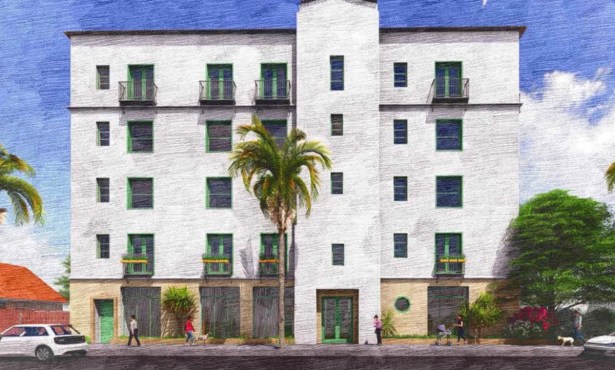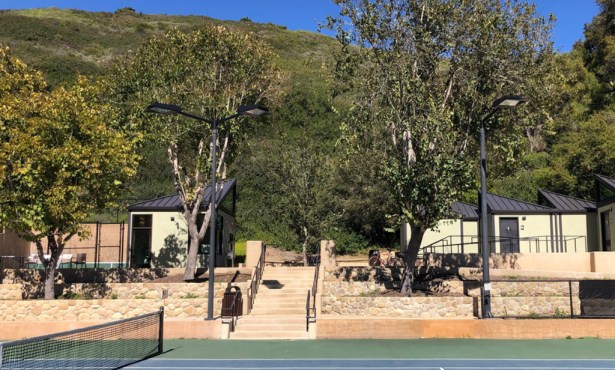Q: ‘What is the history of the Ennisbrook neighborhood in Montecito, known as Ennisbrook?’
‘What is the history of the Ennisbrook neighborhood in
Montecito, known as Ennisbrook?’ -Matt Patterson
By Michael Redmon
On a hill commanding a grand view of the Pacific, just off San
Leandro Lane, sits one of Montecito’s oldest buildings. The
Dominguez adobe not only harkens back to the South Coast’s Mexican
era, but also stands as the centerpiece of the residential
development Ennisbrook.
In 1845, retired presidio soldier Nemecio Dominguez was granted
356 acres of Santa Barbara’s pueblo lands in Montecito. He was one
of 15 children of José and Marcelina Dominguez, who for a time
owned the famous giant Montecito grapevine. Although officially
granted the land in that year, it is possible that Dominguez had
already constructed the adobe home the previous decade. In any
case, Dominguez settled down to farm a small portion of his Rancho
San Leandro. About the only other improvement Dominguez made to the
property was the construction of a small horse racing track behind
the house. In 1868, seven years before his death, Dominguez sold
Rancho San Leandro to Edward Doty who very soon after sold it to
Jarvis Swift, a hotel operator from Nevada. It was under Swift, and
then his son James, that major improvements were made on the ranch.
Whereas Dominguez had carried on not much more than subsistence
farming, the Swifts tried to make the property into a true
commercial concern, raising a variety of crops. Further ownership
changes followed. One owner, local attorney George Gould, was
responsible for putting in the two arched stone bridges that still
grace the property.
Herbert C. Cox of Toronto bought the ranch from Gould in 1916
and it was he who rechristened the property as Ennisbrook. He
enlarged and remodeled the old adobe and, being a horse enthusiast,
he constructed two polo fields, one complete with bleachers. The
property’s association with the local polo scene intensified when
Elmer J. Boeseke Jr. bought Ennisbrook in 1926.
Albert Boeseke had arrived in Santa Barbara in 1866 and opened a
hardware business. A number of his sons, including Elmer (who was a
physician and served two terms as mayor of Santa Barbara), were
avid polo players. This love of the sport was passed on to the next
generation, most notably to Elmer’s son, Elmer Jr. The latter was a
nationally recognized star. He was a member of the U.S. Olympic
team in 1924 and was on the team that won the 1933 National Open
Championship. The following year he was ranked a 10-goal player,
the highest rating possible. Ennisbrook became a center for local
polo, with the Santa Barbara Polo Club using the facilities until
the early 1930s.
The heyday of Ennisbrook was fairly short-lived. The Depression,
the temporary abandonment of polo as an Olympic event, and the
onset of World War II all combined to lessen local interest in
polo. By the mid 1940s, the polo facilities at Ennisbrook were
weed-filled and largely forgotten.
The property was little used and minimally maintained up through
the death of Elmer Boeseke Jr. in 1965. Ennisbrook remained in the
Boeseke family until sold to Jack Theimer and Pat Bourgeois in
1986. Two years later the county approved their plans to build 63
homes on the former Rancho San Leandro. This approval was
contingent upon the developers opening Montecito’s first nature
preserve, 44 wooded acres along San Ysidro Creek. The preserve
opened to the public in 1990 and is a favorite with hikers. The
Ennisbrook development, just to the east of the preserve, is
ongoing. The marriage of nature preserve and residential
development makes Ennisbrook unique in Montecito.
Michael Redmon, director of research at the Santa
Barbara Historical Society, will answer your questions about Santa
Barbara’s history. Write him c/o The Independent, 122 West Figueroa
St., Santa Barbara, CA 93101.


